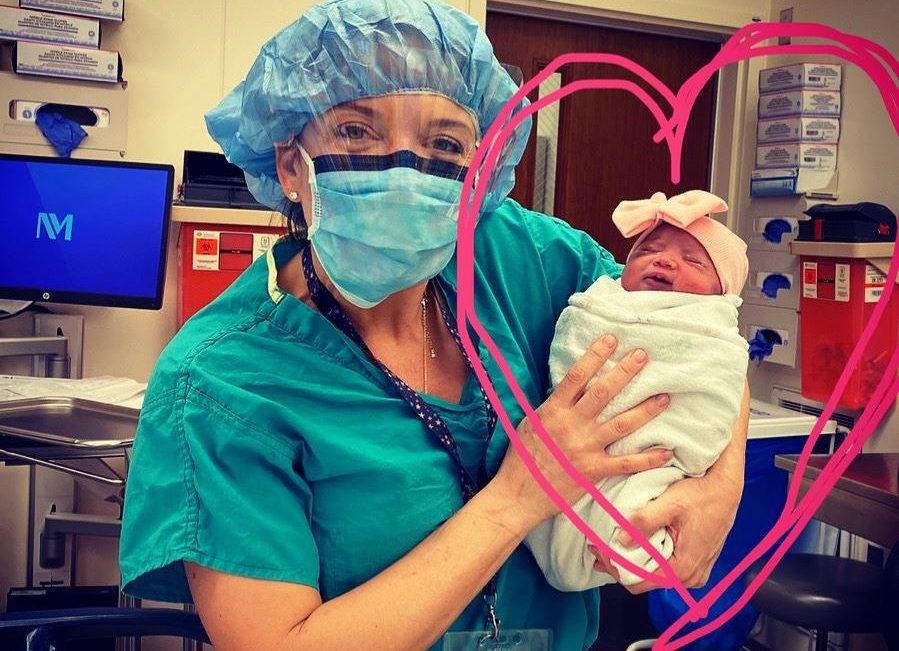
02 Apr Pregnant During A Pandemic
Written By Joey Miller:
Pregnancy marks one of the most vulnerable times in a woman’s life as extraordinary change takes place within her body and her world. But being pregnant during a public health crisis can move this feeling of vulnerability into full overdrive as it’s not only your body that is changing rapidly, it’s the entire world around you.
The World Health Organization (WHO) declared COVID-19 a global pandemic, and in so doing, triggered heightened anxiety in every pregnant woman.
In the United States alone, there are approximately four million babies born annually. This means that within the next three months, approximately one million women will deliver their baby. And for these women who are now poised to deliver during a pandemic, the anxiety is not only severe, it has become a full-on PANIC.
If you are pregnant, this is what you need to know:
ABOUT RISK: According to a recent and well-researched article by Nina Martin in ProPublica on the coronavirus, and information published in the Lancet about pregnant COVID patients in China (and reported by The New York Times), the current medical consensus is there is no evidence that pregnant women are more susceptible to the COVID virus than any other healthy adult. Further, early research suggests the virus is not believed to be vertically transmitted, meaning it has not been detected in amniotic fluid, cord blood, placental tissue, or breast milk, so even if you were to contract COVID it does not behave like the Zika virus where it was quickly evident there were clear transmissions from mother to baby. You can continue to maximize your immune system by eating fruits and vegetables, practicing social distancing and frequent handwashing, and getting good rest.
ABOUT NEW INFORMATION: There is new information daily and guidance is changing rapidly. Rest assured it is all being closely monitored by the Centers for Disease Control (CDC) COVID-19 Emergency Response Team (the medical officer of the Division of Reproductive Health at the CDC is an OB/GYN himself), and the American College of Obstetricians and Gynecologists (ACOG). All medical providers—including obstetric—are communicating more actively, collaboratively, and frequently with each other to ensure they have the most up-to-date information to keep you safe during pregnancy, delivery, and postpartum. If you choose to seek out additional information on COVID, limit your time on the internet and be self-disciplined enough to enforce it. Otherwise, instead of quenching your thirst, you may find yourself drinking from a firehose.
ABOUT PRENATAL CARE: Your routine prenatal appointments will look different and perhaps occur less frequently at this time, but the care and concern from your obstetric provider is no less. As Martin commented in her article, “Here’s the truth about prenatal care in the U.S.: There isn’t a lot of good scientific evidence about how much monitoring a healthy expectant woman needs or the best way for her to get it. The silver lining is that you and your providers have more leeway than you might realize to adjust—reduce—your care schedule without endangering you or your baby, which frees up resources for moms-to-be who need heightened vigilance.” Telemedicine appointments are an excellent way for you to connect with your provider and when you are advised for an office appointment, he or she will discuss ways to minimize office time and exposures. But don’t just focus on telemedicine for your obstetric care—it’s also a viable option for mental heath care and something that is equally important, perhaps even critical right now to help you better manage increasing anxieties, elevated stress levels, and drastic life changes due to social distancing and shelter-in-place mandates. If you do not already have an individual therapist, know there are providers accepting new patients who are more than willing to help you navigate these challenges during this unprecedented time. My practice (wellspringshealth.com) and many other mental health providers are offering video appointments via Zoom.us or Doxy.me (both HIPPA-compliant platforms) for existing and new patients. Therapy can help provide you with new and different coping strategies that will also better position you for delivery and postpartum adjustment. Pre-pandemic, many women worried about postpartum depression and feeling more isolated. You can guard against that possibility by beefing up your support network now, through online communities and remote access to licensed and trained professionals.

“I operate in LOVE not FEAR.”–Mia Norlin, MD, OB/GYN
ABOUT DELIVERY: Be aware that there is a lot of misinformation out there about having to prepare for home deliveries. However, many labor and delivery units remain fully staffed and equipped to handle and separate both COVID and non-COVID patients despite what you may be hearing in the media. Talk with your obstetric provider to get accurate and real-time medical information and updates about your intended delivery hospital instead of relying on the news.
ABOUT YOURSELF: Even though you’re scared, you’re not going to stop (and neither are your fierce obstetric providers). You are going to continue to place one foot in front of the other, taking each hour of each day as it comes. You are not in this storm alone. Yes, communication must be more creative for the time being but your care will continue. While your pregnancy may make you feel more vulnerable, it can also remind you of your purpose right now. You are a mother and even though the storm may continue for some time, you embody hope, new life, and possibility. You carry the message of everything good for tomorrow. No matter how loud the winds howl, that message must not be lost. Hear it, speak it, and celebrate it more than ever.




